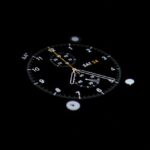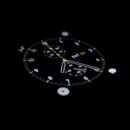Self-help is the only help we need
It is now widely acknowledged that waiting for the government to do anything for you is an epic waste of time. If you are a rural Kenyan waiting for services to reach you, you may well be required to wait until Kingdom Come. The government, you see, has many more pressing things to preoccupy itself with: political manoeuvres; large-scale workshops; racing around in gleaming convoys; and, of late, cat-and-mouse games with donors.
Readers of this column often ask me: so what should we do? If successive governments have outdone each other in sheer uselessness, and waiting for change is a fool’s pastime, then what, really, can anyone do to improve things? The tendency of most people is to wrap themselves up in a cocoon and focus on improving just their own lives and those of their families. That has become the new Kenyan way: me and mine, to hell with everyone else. Without a sensible government in place, selfishness is the only winning strategy. If our leaders can’t worry about communities, about the poor, about social capital, the why should we? And even if we chose to worry, what can we as individuals do in any case?
To answer that question, let me take you to a remote place. Karima School lies on the dusty floor of the Rift Valley near Mount Longonot, a few kilometres from Mai Mahiu. The surrounding area has never seen a telephone or power line. The children of this school, like millions of their rural counterparts across the land, had until recently never even touched a computer, let alone used one. We all know that without computing knowledge these children cannot acquire meaningful skills in the modern world. But what to do? Shall we wait for the grand rollout of rural electrification programmes? Shall we look out for the government to create the right incentives in the telecommunications industry so that the rural teledensity plan finally hits Karima? Shall we wait for the national ICT strategy to sweep us all to computing heaven in a winged chariot?
Meet Steve Peifer, an American who has made the area around Karima his home in recent years. Steve is a technologist who worked for the Oracle Corporation in the USA before throwing it all away to come to live and work in Kenya. He met the children of Karima School and saw their innocent and eager desire to learn new things. He saw them packed into classrooms without any adequate teaching aids. But unlike most of us, he didn’t shake his head in despair and walk away. He decided to do something about it.
His strategy did not involve knocking on the doors of ministries and departments. He simply devised an alternative plan, and set out to make it work. Step one was to raise some money: this he did by talking to family and friends both here and in the USA, and by digging into his own pocket. He then bought a 20-foot used shipping container, 10 refurbished laptop computers, a solar power supply unit and some building materials and chairs. Steve, his friend Walter and other willing helpers then cut windows and a door into the sides of the container, laid a concrete foundation and built a roof. They wired up some solar panels from the roof to the power unit and connected the 10 laptops. They spruced everything up, planted a few flowers around the new structure, and voila! The 21st century hit Karima School, Kenya.
If you are ever on the road to Narok from Mai Mahiu, make it a point to stop at the Karima School and ask to see their computer laboratory. You will find a neat and clean, fully functional computer room in which laptops are whirring away, powered by nothing other than the African sun. You will meet busy little kids tapping away on the keyboards, their eagerness shining on their faces. You will be told that some of them queue up for two hours from 5.30 in the morning, just to get a chance to learn typing on the computers before classes begin. You will come away from Karima School, as I did, with a song in your heart and hope unbounded, knowing that you might just have glimpsed the future of rural education.
The cost? A total of Shs 1.2 million, from start to finish. Or one-eighth of the cost of a minister’s car. For that very modest outlay, hundreds of school children now have access to computing power. From them may emerge those who will one day have the expertise to salvage this country. For the kind of money that we blew into the ether in a nonsensical Jamhuri celebration last year, a hundred solar-powered computer labs could be installed around the country.
But Steve and his friends did not preoccupy themselves with calculations like that. They quickly raised some money and got down to work. For their initiative and their endeavour, they have achieved what most of us never will: brought meaningful progress to the lives of many. And they did it for neither gain nor glory.
Steve is not a Kenyan, and perhaps that is what helped him. For what would we Kenyans have done in his place? Probably nothing. Most would have shrugged and turned away. Some would have written a letter to an editor complaining about the government’s neglect of a crucial area of education. Others may have approached an NGO to do something. Many would have looked for personal gain in the whole thing. Most would have moved on to something more productive. There are Kenyans scattered through the republic who are not like that, who have initiated wonderful micro-projects without waiting for outside help. But there are not many.
“The superior man is modest in his speech, but exceeds in his actions”, said Confucius. Steve is indeed a modest man, and he is telling us something. He is telling us that we all have the power to bring change in the lives around us, and we don’t have to be elected to power to do so. First, we must learn how to give a damn again. And then we must organise ourselves and just do it. Self-help is the only help we need. The writer Margaret Mead told us: “Never believe that a few caring people can’t change the world. For indeed, that’s all who ever have.”
If we are to move this country forward, that may well be the way to do it. As is now apparent, there is no Kenyan Nelson Mandela waiting to emerge in order to save us. Politics is a mere illusion, a circus sideshow that keeps us distracted. We have to learn to see through the illusion, and concentrate on what matters: selfless and immediate action.
Why are we here? To do something. Find out what it is, and do it. The world is changed not by the booming waves of history, but by the little ripples happening in unseen tide pools. Start a little ripple yourself today.

Buy Sunny Bindra's book
UP & AHEAD
here »
Popular Posts
- Who owns the time in your life?September 29, 2024
- Why 60 per cent is often an excellent result in lifeSeptember 22, 2024
- Customer complaints are as old as humanityOctober 6, 2024
- Why the lazy may be your best innovatorsOctober 13, 2024
- The struggle for meaning is both peculiar and personalOctober 20, 2024











